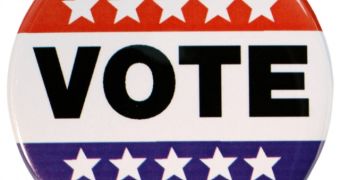The Entertainment Software Association has been taking a lot of flak recently for failing to adequately represent the videogame industry in the United States. Activision and Blizzard, the soon-to-merge videogame giants, and then LucasArts and id Software, all have withdrawn membership from the trade association, with some of them also pulling out of the ESA organized E3 expo.
But now the ESA has something to show when it comes to results. The Video Game Voters Network, which was started by the ESA in 2006, has reached the threshold of 150,000 members. The group keeps its members informed regarding the way lawmakers and candidates approach videogame related issues, such as limitations imposed on the sale or on the production of videogames. The group is also ready to get involved in all disputes that concern gamers, in issues related to free speech or in matters regarding industry self-regulation.
Michael Gallagher, who is the Chief Executive of the ESA, stated that: "VGVN members should be proud of their robust activity in support of computer and video games. These dedicated activists are crucial in efforts to fight back state government attempts to regulate computer and video games. With each political challenge, gamers stepped up and made their voices heard by elected officials. We know that from California to New York and state capitals in between, members of the VGVN directly contacted their representatives and expressed their opinions."
Recently, more and more representatives and candidates have tried to make a name for themselves by attacking videogames and by proposing legislation that would limit the sale of games. Not long ago, presidential candidate Barrack Obama name-checked GTA IV when talking about the need to get kids out of the house and to make them more interested in their own education.
With the American presidential elections set for fall, the VGVN might prove an influential group, because it can advise members on the stances the candidates have regarding videogames, which might swing votes from one candidate to another. The "gamer vote" might just end up being as important to the Democrats and the Republicans as the "black vote," the "Latino vote" or the "labor vote," especially as the elections will likely draw out a significant number of young people that can be very passionate about their videogames.

 14 DAY TRIAL //
14 DAY TRIAL //